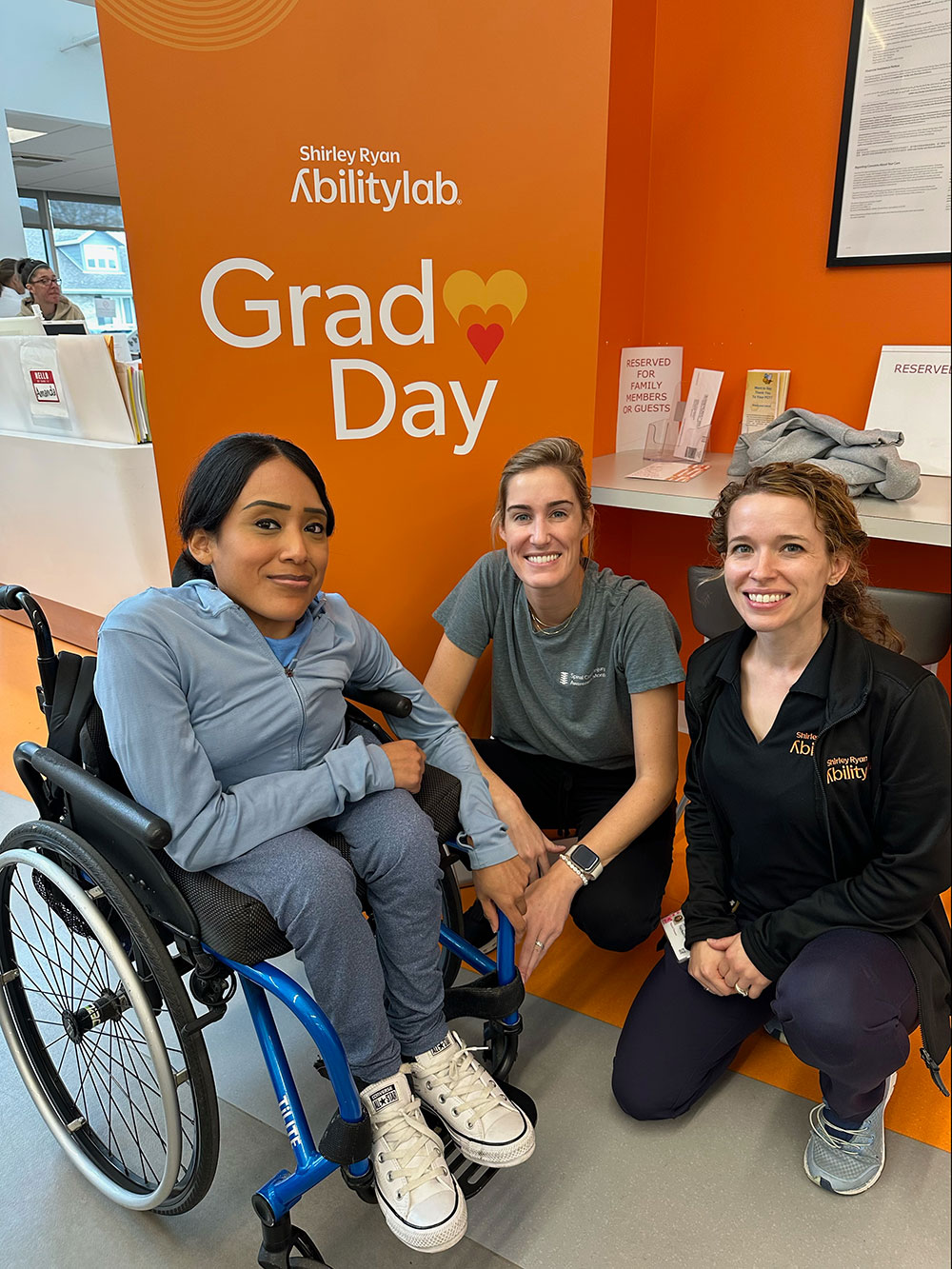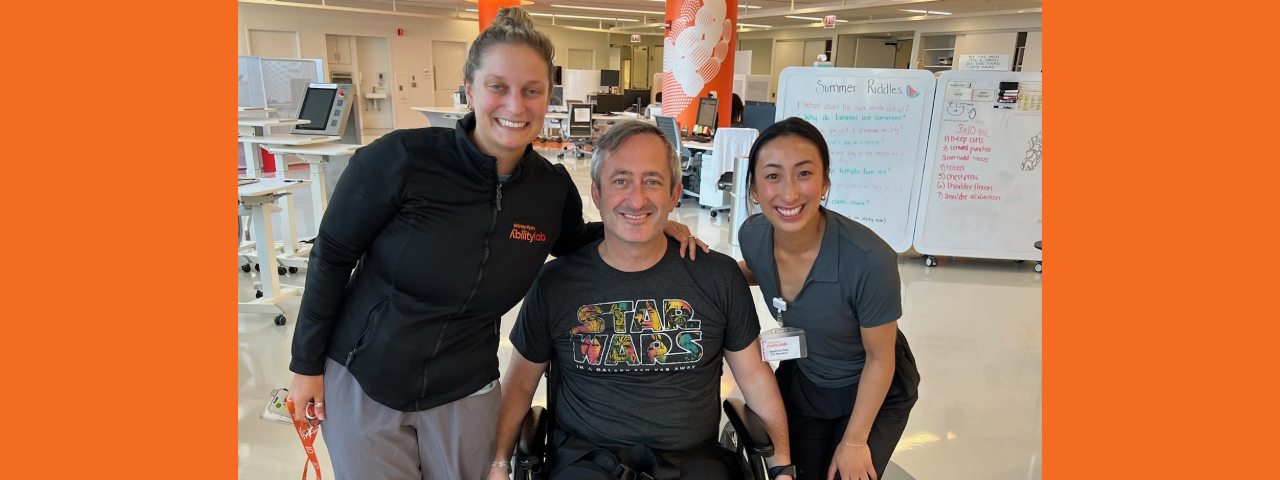Body
“There’s a story behind everyone’s voice, and we should all be heard,” said Lupita, 29, a Shirley Ryan AbilityLab patient living with spina bifida. “I was always a go-getter, unafraid to take on life,” she said. “Then I ran into a brick wall. Nobody had any answers for me, and I felt let down by the team that had been caring for me since childhood.”
She found those answers at Shirley Ryan AbilityLab’s Burr Ridge DayRehab® Center when she connected with a new, unique care team. Finally, a doctor and therapists heard her. “They helped me reconnect with my body and myself.”
What is Spina Bifida?
Body
Lupita’s journey began when she did — she was born with spina bifida. Spina bifida occurs when an area of the spinal column doesn’t form properly, leaving a section of the spinal cord and spinal nerves exposed through an opening in the back. The exposure results in damage to both the cord and the nerves.
Although there are many resources for children with spina bifida, there are far fewer for adults who require the same specialized care, and always will over the course of their lives.
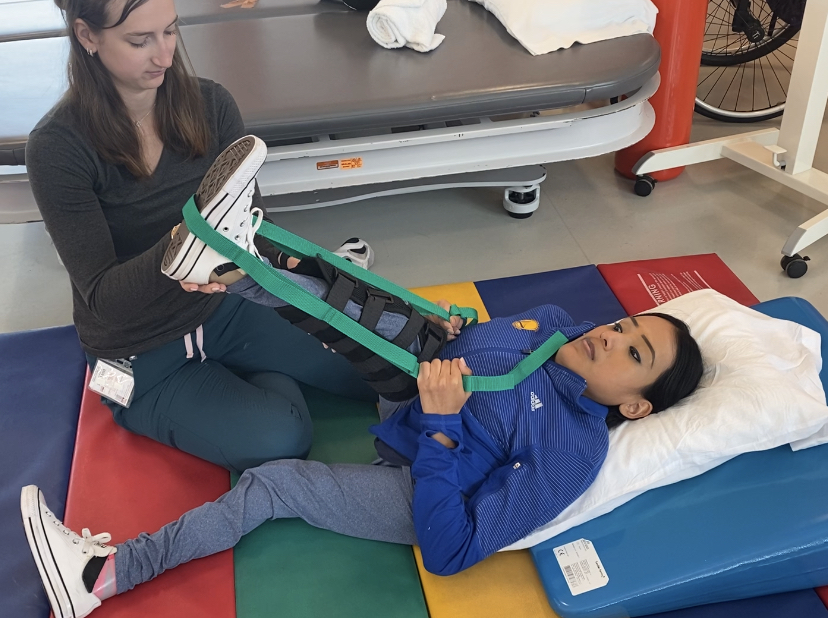
Self-advocacy Is Key
Body
Throughout her life, Lupita took on as many opportunities to advance her health and mobility as were possible. In 2018, however, she lost her ability to walk with her braces. This loss was huge. It also compounded other medical, emotional and psychological traumas she’d had to confront.
“The loss hurt me deeply because walking was very important to me, not just because of the mobility and greater independence, but more importantly, it made my body feel good,” she said. “They told me I wouldn’t be able to walk past the age of 10, and so I took a lot of pride in being able to walk as an adult.”
Lupita returned to the medical team that had been caring for her since childhood to ask, “So, what do we do now?” They had no answers. She felt disappointed and increasingly despondent. “Honestly, I gave up on myself,” she said. “Then I realized there are other doctors out there and began asking questions.”
Rehabilitation & Reconnection Plant Seeds of Hope
Body
One of the people Lupita connected with during her search was a physician specializing in physical medicine and rehabilitation at Shirley Ryan AbilityLab. This doctor was listening. She suggested Lupita try physical and occupational therapy.
Characteristically, Lupita jumped at the chance, and when her care team learned that she wanted to be a professional public speaker, they also encouraged her to participate in vocational therapy.
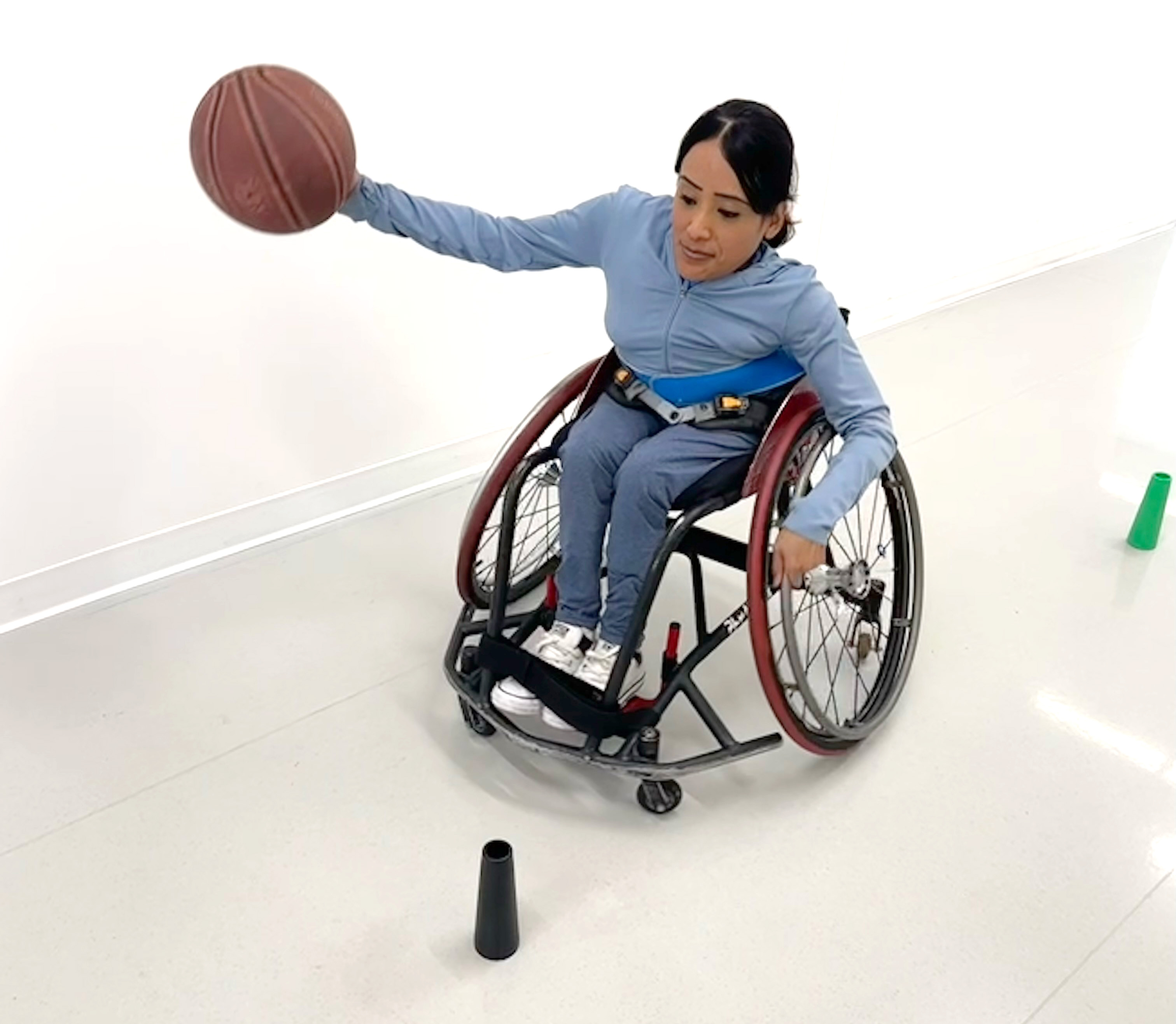
Meeting Therapy Goals
Body
Lupita’s most important goal was to recover her ability to walk with braces. “First, though, I wanted to recover the ability to crawl. I wanted to be able to push my wheelchair without my arms locking.”
She’s also learned to accept her body where it is and go from there. “I know that my hips are not healthy,” she said, “but I’m finally crawling again, and I can push my wheelchair longer distances without my arms locking. I’m also not dropping things all the time. I’m taking it day by day.”
Lupita didn’t expect therapy to be so varied. She and her therapists did everything from playing basketball, boxing and lifting weights to practicing lying on her stomach and rolling onto her side, the latter two actions initially being very scary for her.
“My therapists helped me feel safe, like I could do anything. I felt like a human being. For so long, I just felt that I was my condition, like that was my identity. They really opened my eyes and encouraged me to give myself a chance.”
Lupita feels she got lucky with her Shirley Ryan AbilityLab doctor and therapists. “I had become so isolated and frustrated,” she said. “They really showed me that I was worth being here. They let me cry or be vulnerable, yet at the same time, they kept pushing me forward and cheering my gains. We were always laughing, too. Honestly, they’ve really changed my life.”
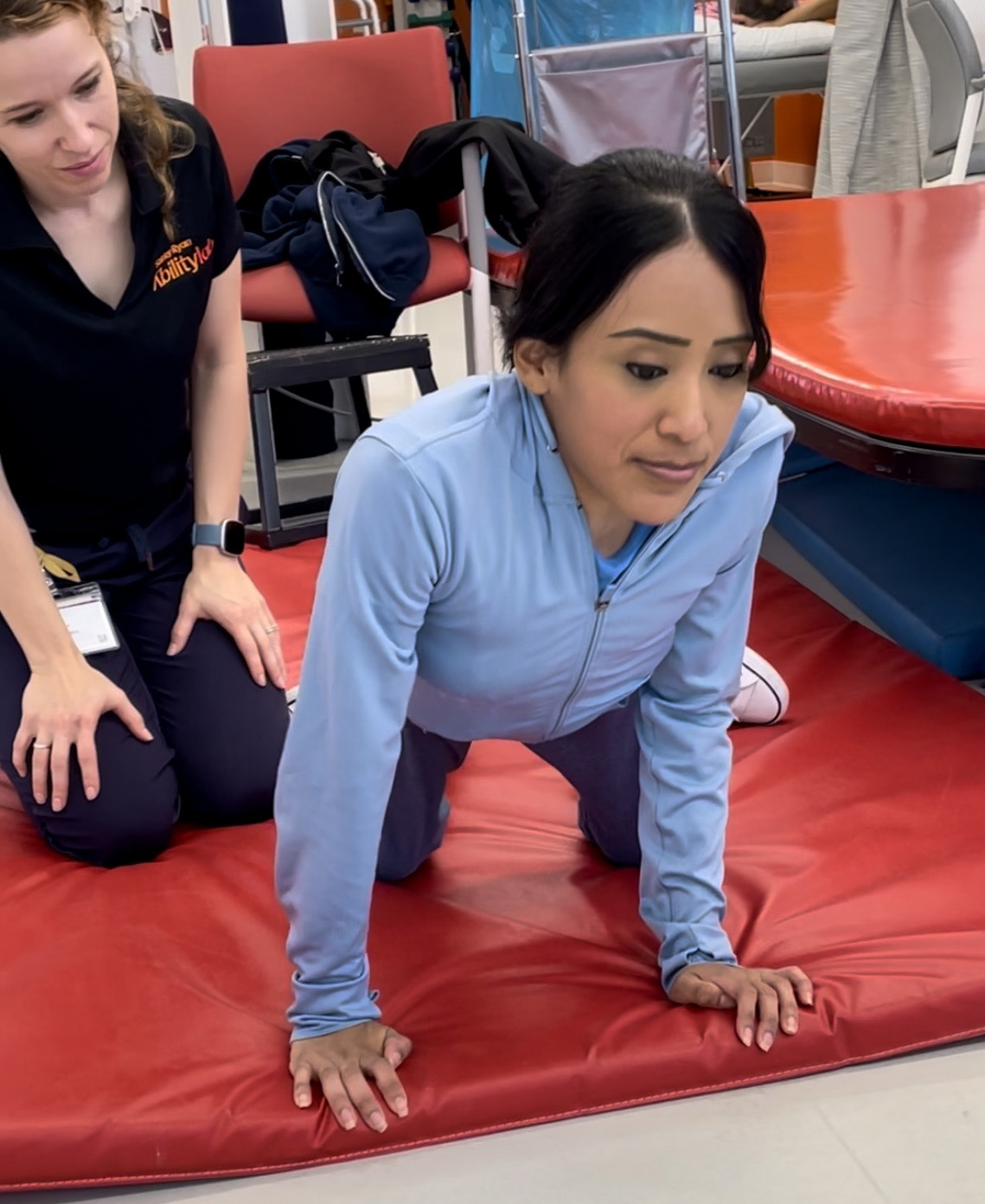
Shaping Her Future & Sharing Her Past
Body
Lupita celebrates the holistic care she received. “I’m so thankful they gave me a chance to be me,” she said. “One thing they taught me was never to limit myself. If I find something I want to do, I can make it work for me.”
Her long-term goals include public speaking and perhaps writing a book on her experience. She’s currently in school studying early childhood education and looking at opportunities to give back to the community.
“I want to share my story,” she said. “I don’t want new generations to go through what I went through. I want them to be strong advocates for themselves, and I want them to know there are more resources out there than they might realize, but they aren’t always easy to find. If you’re not getting the help you need and deserve, keep looking,” she said. “Shirley Ryan AbilityLab knows about so many resources for you and accessing them is life-changing.”
